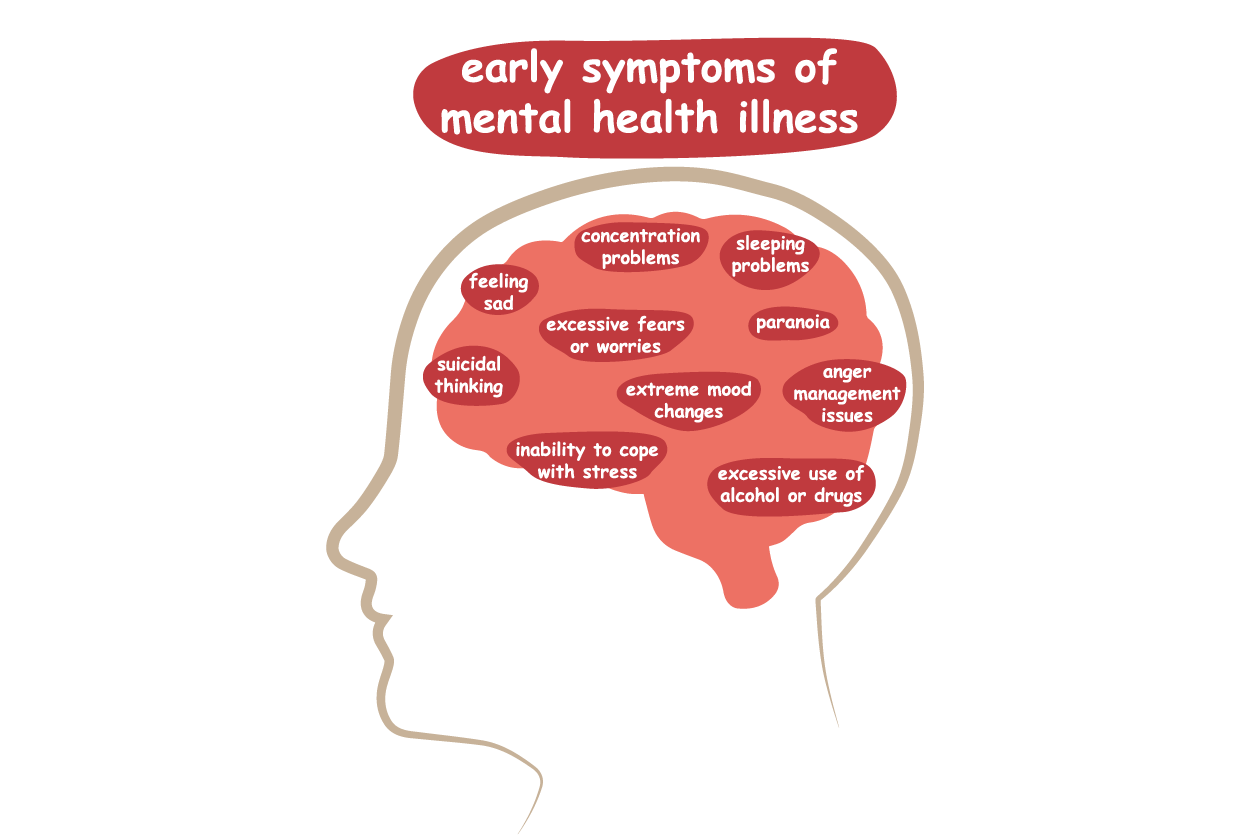Mental illness refers to a broad range of conditions that affect a person's thinking, mood, behavior, and overall mental well-being. These conditions can have various causes and present with different symptoms. Understanding the causes, recognizing the symptoms, and exploring the available treatments are crucial for addressing mental health concerns.
Causes of Mental Illness
Biological Factors: Certain mental illnesses, such as schizophrenia, bipolar disorder, and major depressive disorder, have been linked to genetic and biological factors. Chemical imbalances in the brain, abnormal brain structure, and neurotransmitter abnormalities can contribute to the development of mental illnesses.
Environmental Factors: Traumatic experiences, such as physical or emotional abuse, neglect, or the loss of a loved one, can increase the risk of developing mental health disorders. Additionally, chronic stress, exposure to toxins, and substance abuse can also play a role in the onset of mental illness.
Psychological Factors: Individual psychological factors, including personality traits, coping mechanisms, and the presence of other mental health conditions, can influence the development of mental illness. For instance, individuals with low self-esteem or a history of trauma may be more susceptible to certain disorders.
Symptoms of Mental Illness
The symptoms of mental illness can vary widely depending on the specific condition, but some common signs include:
- Changes in mood: Persistent sadness, irritability, anger, anxiety, or mood swings.
- Behavioral changes: Withdrawal from social activities, decreased motivation, changes in sleep or appetite, or engaging in risky behaviors.
- Cognitive difficulties: Trouble concentrating, memory problems, difficulty making decisions, or experiencing persistent negative thoughts.
- Physical symptoms: Unexplained physical ailments, changes in appetite or weight, headaches, or chronic pain.
- Distorted perception: Delusions, hallucinations, or paranoia.
- Impaired functioning: Difficulties in work, school, relationships, or daily activities.
Treatments for Mental Illness
- Therapy: Psychotherapy, such as cognitive-behavioral therapy (CBT), can help individuals develop coping skills, challenge negative thoughts, and explore underlying causes of their mental illness.
- Medications: Depending on the specific condition, medications like antidepressants, antianxiety drugs, mood stabilizers, or antipsychotics may be prescribed to manage symptoms.
- Lifestyle changes: Engaging in regular exercise, maintaining a healthy diet, practicing stress management techniques, and getting enough sleep can have a positive impact on mental health.
- Support networks: Building a strong support system, which can include friends, family, and support groups, can provide emotional assistance and a sense of belonging.
- Hospitalization: In severe cases, hospitalization may be necessary to ensure the safety and well-being of individuals experiencing a mental health crisis.
It's important to note that treatment plans are highly individualized, and what works for one person may not work for another. Seeking professional help from mental health practitioners, such as psychiatrists, psychologists, or licensed therapists, is crucial for accurate diagnosis and appropriate treatment options tailored to each individual's needs.


